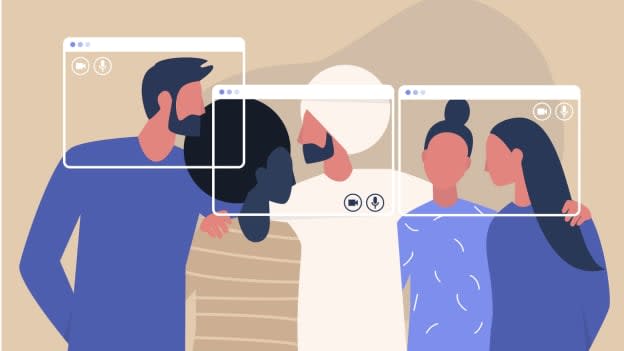Millennials and GenZ: Will the digital culture reset require additional reforms for them?

Technology has disrupted traditional norms of culture and given birth to new ways for humans to interact and connect with one another. While digital transformation has swept the business landscape, its impact was deeply felt in the last year when organizations that were previously laggards were also forced to go digital. The evolving relationship between humans and technology also comes with its set of challenges and inhibitions.
For an organization that may claim to be digital-first – be it through its products, services, customer interactions or operations – how prepared and empowered are its employees to embrace these shifts? How have their perceptions and individual behaviours evolved to stay relevant in the new world and what measures have organizations taken to enable this? Added to this conundrum, are the new-age Millennials and GenZs who are spearheading the digital culture that makes work more collaborative, autonomous and flexible.
Understanding the new workforce- GenZ and Millennials
Generation Z accounts for 30% of the global population and already makes up about a quarter of the workforce. So, they naturally become an important component in the workforce mix along with millennials. With millennials still adapting to the evolving digital culture and GenZs all set to join the workforce, are organizations prepared to welcome them into their cultural fabric? Digital transformation has, without doubt, accelerated in most organizations, making them future-ready. But do these organizations need to reform their existing digital cultures to cater to this young generation?
For employers to ‘reset’ this digital culture, they must partake in the mammoth, yet important task of understanding these cohorts with revised data and insights focusing on the needs, attitudes, desires, and motivators for this generation. According to a Gallup study, GenZs and millennials want an employer who cares about their wellbeing and wants their leaders to be ethical.
Here are three ways in which organizations could relook at their digital culture to ensure millennials and GenZs can stay informed, engaged and empowered.
Evolving role of HR
To stay competitive in the recruitment landscape, HR needs to embrace sophisticated tools and technologies to deliver superior and personalized candidate experiences. Studies show that GenZs spend more time on social media than their millennial counterparts. A 2019 Business Insider survey found that Instagram (65%), YouTube (62%) and Snapchat (51%) are the most popular social sites for GenZ. It would be worthwhile for talent acquisition teams to consider this into their strategy. Segmenting the audience will further help organizations understand their needs and preferences and tailor their experience.
Focus on culture and employee experience
The new workforce is digitally savvy, flexibility for them is the name of the game and they are socially conscious. To win their hearts, companies must pivot to a culture that respects their needs and preferences. Employee engagement and experience need to go digital to cater to these digital nomads. Organizations must also seriously explore tools for engaging and amplifying interactions with the millennials and the GenZ. While leveraging technology is critical, these cohorts also appreciate a ‘human-first’ culture which means organizations need to identify moments that matter to them, receive feedback more often and build trust through transparency.
Rethinking L&D
Organizations mustn’t forget that GenZs are the ‘internet generation’ or the ‘true digital natives’. But having said that, they, along with millennials, also value face-to-face contact. They can no longer be wowed by technology. What will be a gamechanger in the learning and development space is personalization of learning content based on their strengths, gaps and passion areas. Leverage engaging formats to fulfil their learning needs – it could be high quality videos for instance. Explore tools that can give them an immersive learning experience like gamification, AR/VR augmented reality, simulations, etc. Microlearning can also help them to consume byte-sized content in minutes rather than hours.
The relationship that millennials and GenZs have with work is different from other generations. Their career aspirations, working styles and learning needs are unique. They are more ambitious, socially aware, need instant gratification, question hierarchy and demand more from employers. Organizations therefore need to reset their mindset, prioritize what these cohorts value and introduce new and improved ways of working.
















